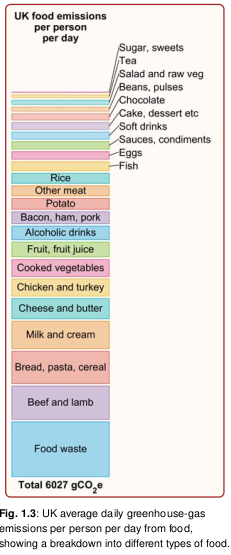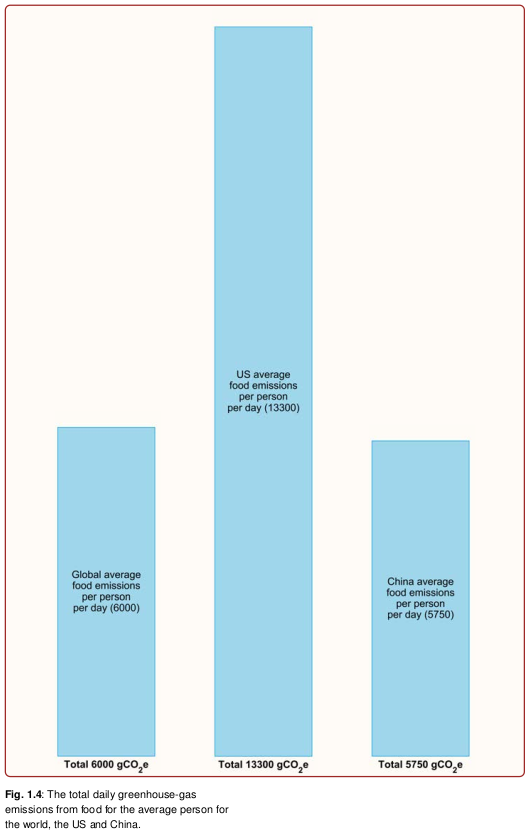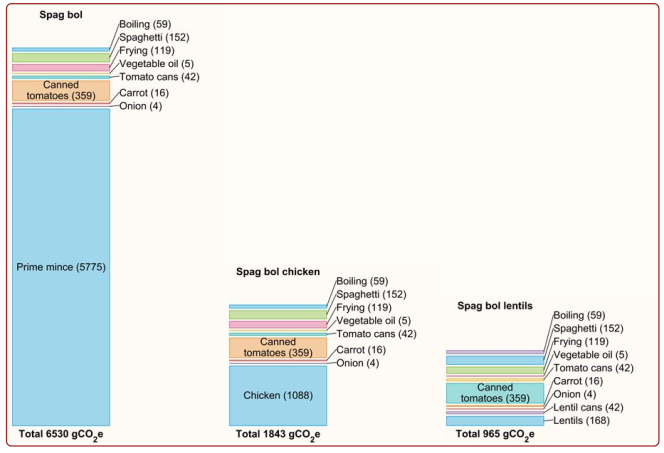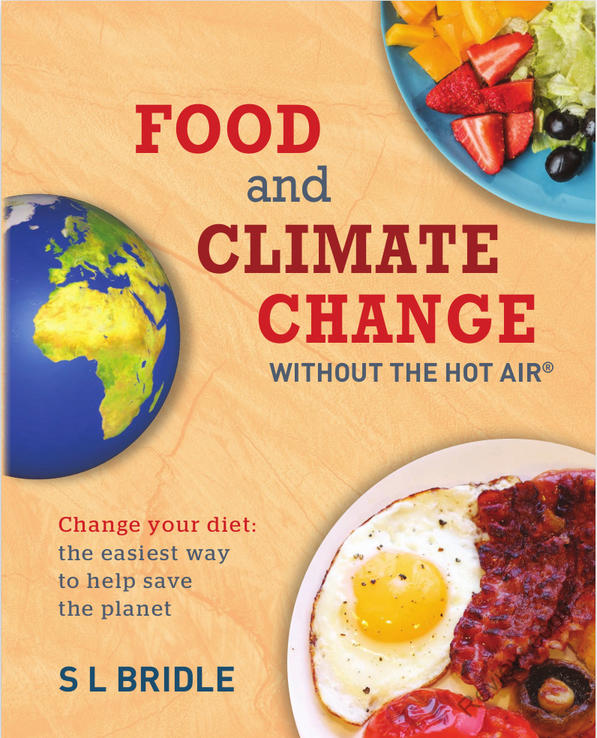The Book: Food and Climate Change–Without the Hot Air
Food started my path to finding that acting on my environmental values improves my life. Before trying, I expected stewardship to feel like a burden or chore. Eating from scratch relieved me of that misperception. Food is delicious so great place to start your journey.
A new book came out in the Without the Hot Air Series that began with David J.C. MacKay’s Sustainable Energy Without the Hot Air, available by free download. I consider it one of the most valuable resources on learning and practicing sustainability.
The new book is called Food and Climate Change Without the Hot Air. The author, Sarah Bridle, also comes from an astronomy background. It continues the series’ presenting the information usefully without sensationalizing it. UK readers can download the ebook free from Amazon here. I’m not sure if non-UK readers can download it free too. Watch the videos on this page to find out.
In other words, it’s accessible, easy to read, engaging, and relevant to everyone’s lives. We all eat and live on Earth. It compares many foods’ contribution to global warming. In Mackay’s style, it puts everything onto one scale so you can easily compare all foods. If only nutrition books presented the date so usably.
Some “fun” graphs
This graph breaks down the UK greenhouse gas emissions from food. The largest contribution comes from waste!

You can expect Americans to waste more food. How do I know? From this graph (way to go, Americans):

Most of the book breaks down typical foods and meals by how each part contributes to global warming. Here’s an example that happens to show relative contributions of a steak-based dinner, chicken-based, and lentil-based.

The book doesn’t require a science background. In gives all its references and explains them too.
Packaging being an issue for me, I’d prefer the book consider packaging’s impact beyond climate, but can’t fault the book for sticking to its strategy. It doesn’t treat how packaging poisons the environment.
I was glad and dismayed to find that mainstream food and doof doesn’t match my pressure-cooked, nearly all local ingredient-based food. I felt gratified to see my food’s level of deliciousness matches its low emissions—not to mention my food shopping helps my local economy and entrepreneurs instead of doof engineers.
Problem
Coming from a leadership perspective, I consider emotions and imagery at least as important to changing behavior as fact. Bridle implies what I used to think before I changed—that sustainability is a burden or chore:
Some people (myself included) exhaust themselves by trying
to do everything they can think of to reduce their emissions. But
doing “everything you can think of†isn’t a sustainable way to
live – you’re likely to burn out or give up.
My experience of finding new ways to stop hurting others is of consistent live improvement, the opposite of burning out or giving up. To me she sounds like someone saying “trying to do everything you can think of to raise your children healthily isn’t a sustainable way to live – you’re likely to burn out or give up.” I find the more I switch to fresh, in-season, local fruits and vegetables, plus bulk beans, nuts, spices, and such gives me energy.
Sustainable Energy and Flying
Mackay also led me to try a year without flying, which continued my journey to living by my values. My first few months not flying by choice increased community, family, adventure, control over my career, and other things I associated with flying so much I continued to another year and kept going. Flying tears up communities, disconnects us with the 80 percent of the world’s population who can’t fly but have to live with flying’s pollution, separates us from our families, and so on. I’m nearing finishing my fifth year. I consider avoiding flying another great place to start living by one’s values.
Here’s the video of David MacKay that taught me that flying New York-LA round-trip warmed the globe about a year’s worth of driving. I recommend watching it. David inspired me, the author of Food and Climate Change, and many others.
Read my weekly newsletter

On initiative, leadership, the environment, and burpees
